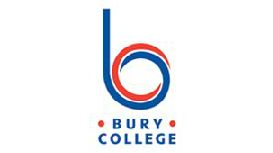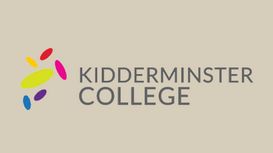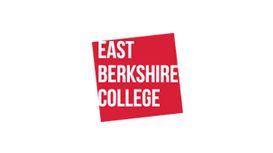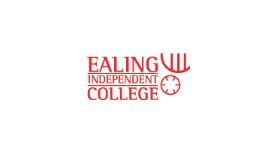Partner's ads
Colleges in the UK

Belgravia College
Harrow on the Hill, North West London, London, HA1 1UD
Belgravia College is situated close to Harrow and Wealdston Station which is serviced by London Midland Trains, Southern Railway, The London Overground Network and The London Underground Bakerloo

Exeter Royal Academy
Exeter, Devon, South West England, EX2 4NF
Our vision is to see Deaf people valued by themselves and their society, being confident, well educated, independent, able to communicate and with good and appropriate employment and housing. The

Pennine Camphill Community
Wakefield, West Yorkshire, Yorkshire and the Humber, WF4 3JL
Pennine is an independent specialist college providing for young people who have learning difficulties. Preparing for Adulthood and providing a Local Offer are key themes in Pennine. We are often

West George College
West George College is an independent college with a friendly and caring approach, which means that no student gets lost in the crowd. Our courses are organised around a tutorial system with smaller

City College
Birmingham, West Midlands, West Midlands, B21 9DP
Studying at the City College was without a doubt one of the best experiences in my life. They encouraged me, built up my confidence during these 3 years of my HND course and BSC top up program. What I

White Rose College
York, North Yorkshire, Yorkshire and the Humber, YO10 5DD
To achieve this, the College works closely with leading external organisations from sectors including museums, galleries, archives and libraries; arts and heritage organisations; creative industries;

Bury College
Bury, Greater Manchester, North West England, BL9 0BL
At Bury College we aim to provide you with the best possible student experience, offering high quality academic and vocational programmes in a host of subjects and giving you outstanding choice. By

Kidderminster College
Kidderminster, Worcestershire, West Midlands, DY10 1AB
Kidderminster College is a division of NCG, one of the largest education, training and employability organisations in the UK. NCG's purpose is: Unlocking Potential Through Learning. With a nationwide

Radcliffe College
Marylebone, West End, London, W1D 2JX
Radcliffe College was established over 20 years ago. It is conveniently situated in Oxford Street, which is one of the world's busiest shopping areas based in the heart of London. If you are an

Langley College
Slough, Berkshire, South East England, SL3 8BY
Visit East Berkshire College to find out everything you need to know about our courses, where you'll be studying and what you can do when you're here. If you would like to discuss your company's

Guru Gobind Singh Khalsa College
Chigwell, Essex, East England, IG7 6BQ
Dr. Alexander Martynov, The Head of Foreign Relations in Russia, has invited GGSK College Students to visit and participate in the Educational event called SPACE MASTER CLASS. The goal of the event is

Ealing Independent College London
Ealing Common, West London, London, W5 5AL
Ealing Independent College London is based in one of the nicest parts of West London, with students being enrolled from Year 9 upwards. Ealing Independent College London has an excellent reputation

Pilton Community College
Barnstaple, Devon, South West England, EX31 1RB
Pilton Community College is a very successful 11 - 16 mixed comprehensive school. We have high standards and high expectations and we aim to help each and every student to succeed. A love of learning

St David's College
We encourage a love of learning, both in the classroom and via a spectacular Outdoor Education, Sport and Activity programme. Our family atmosphere, whole-person approach and Christian foundation make

Imperial College Boat House
Putney, South West London, London, SW15 1LB
1935 Charlie Newens appointed Assistant Boatman to Dick Phelps at Thames Rowing Club, with special responsibilities to Imperial College Boat Club. 1938 Opening of the new Boathouse by Lord Desborough,
Can't find your business?
Adding a business to Colleges-UK.co.uk is free.Frequently Asked Questions and Answers
- Click here to navigate to the Login page.
- If you haven't yet registered, click here to navigate to the Registration page.
- Fill all required fields.
- After you have logged in, click on "Add Business.
- After you have clicked on "Add Business", you will be redirected to another page.
- You can now fill in the details for this Business.
- Click on the "Create" button.
- Your listing will now be "pending approval".
- One of our Administrators will review your listing and decide whether to Approve or Reject it.
- Priority listing positioning for city, county, in the search results, and our home page.
- A website link on the listing page.
- Can add services with links included.
- Have access to all submitted free quotes from our visitors.
- Increase leads that you can follow up and generate sales from.
- Increase your online presence which, these days, is an indispensable commodity.
- Allow the thousands of potential customers who use the directory each month to find you.
Many students from abroad, when visiting a foreign country for an exchange year or to simply enroll at a Bachelor or Masters degree course, or another type of an educational course, often find it difficult to figure out the educational system of the country hosting them as students. And this is totally normal and understandable. At the end of the day, the majority of the countries in the world follow their own educational system that may be similar to other countries in the world, but not necessarily exactly the same.
This is a common case when it comes to the term “college” in the UK. When students from the USA and many other countries in the world are asked to define what college is, they will quickly explain to you that college is the same thing as university. However, is it the same in the UK? Did you know that college in the UK is something different from university? Today we are about to explain the basic differences between a college and an university in the UK, so stay tuned if you are interested in this topic.
The Difference Between University and College in UK
Confusion about a foreign educational system is a common thing students from abroad face and they may feel intimidated by that. However, there is no place for worries, because things are often easy to explain and get used to. This applied for the difference between a college and a university in the UK. In many countries both terms are pretty much interchangeable and mean the same thing. Other countries simply never use the term college and they have universities only. However, when it comes to the UK, there are both a college and a university as a part of the educational system and they mean something different. Well, if you are an exchange student in the UK or going there to study for a degree, you will soon find out that the country has a pretty unique educational system and the college is not the only thing different here.
Before explaining more in-depth the difference between a university and a college in the UK, let’s get some basic understanding about the educational system in the country in general, about a university, and about a college. It is a very good and important beginning if you are interested in studying in the UK and getting a degree, because there are different options and opportunities and you can choose the one that best suits and meets your requirements and needs as a student. Both a university and a college can help you develop in different ways and achieve different goals. Therefore, it is important to understand the difference between a college and a university and make the right decision, depending on your plans for the future.
In general, the UK educational system is divided in five major stages as it follows: Early years, Primary years, Secondary School, Further education, Higher education. The first three stages of education in the UK are the base of what the world knows as compulsory education. What happens at the end of secondary school is that students will sit for GCSE or A-Levels exams and next they will be free to make the decisions and choices about their future. This is the first stage, where the difference between a college and a university in the UK is very apparent. Basically, the main thing that differs a college and a university in the UK is that both terms determine a different level of education in the country.
In the most common way around the world, students will move from secondary school to a university, if they wish so. However, the UK educational system throws one more option for students in the whole mix and this is the college. UK students face a few opportunities by the end of this period and they can either decide to simply find a job right away and not to follow further education plans, they can enroll at a higher education, which is a university, if they have taken their A-Levels, or they can choose to enroll at a further education course and gain particular set of skills needed to land a specific job and start a specific career, which in the UK is referred to as a college. With these options in mind, it is safe to say that there are a bunch of differences when we compare a college and a university in the UK. The main one is that both terms are used for different levels of education, however, both a college and a university will differ in the context of degrees, duration, study curriculums, and more.
What Makes a University Different Than a College
When it comes to the UK, national universities can offer two types of degrees – undergraduate degrees and postgraduate degrees. Some universities in the country can also offer some further and specific educational courses, such as foundation degrees.
College in the UK Explained
A college is an educational institution that offers further education courses that will lead to specific qualifications and degrees. With that in mind, a college is usually assumed to offer more practical skills and qualifications. College qualifications in the UK include the following: diploma, foundation degrees, GCSE, Higher National Certificate, Higher National Diploma, International Baccalaureate.
In general, college courses in the country are designed in a way that students can obtain a certain level of skills and qualifications in a particular field. By finishing college, students are able to get a job or gain academic preparation for continuing their education at a university. A college course will also be more focused on providing students with a set of more practical skills. Therefore, a college in the country is often chosen by students, who want to obtain skills and become employable in a shorter period of time. A college will usually offer a part-time and flexible studying option besides the full-time studies that normally list last for one to two years.
The Benefits of Studying in a College
Almost two hundred thousand people in the UK are attending a college every year according to recent studies. So what makes so many people decide to continue their studies at a college? Is it beneficial to study at a college? However, it is important to mention that more students in the country prefer to attend a university over a higher education college. But still, their many benefits when it comes to a college, including:
• Lower tuition fees for a college
• Less overloaded college classes
• Study at college from home and reduce expenses
• Flexible college study programs
• Opportunity to continue with a university degree after college
• More individual support at college
College Tuition Fees
When it comes to higher education in the UK, it is pretty much costly and expensive, therefore, a college is a good option if you are on a budget. Enrolling and studying at a UK college will cost you significantly less. So if you don’t have the money for university tuition and you don’t want to rely on a student loan, a college is a good solution. College students in the UK are further encouraged by being provided with a range of merit-based and need-based bursaries.
The difference between university and college in UKWhat makes a university different than a college
College in the UK explained
The benefits of studying in a college
College tuition fees





